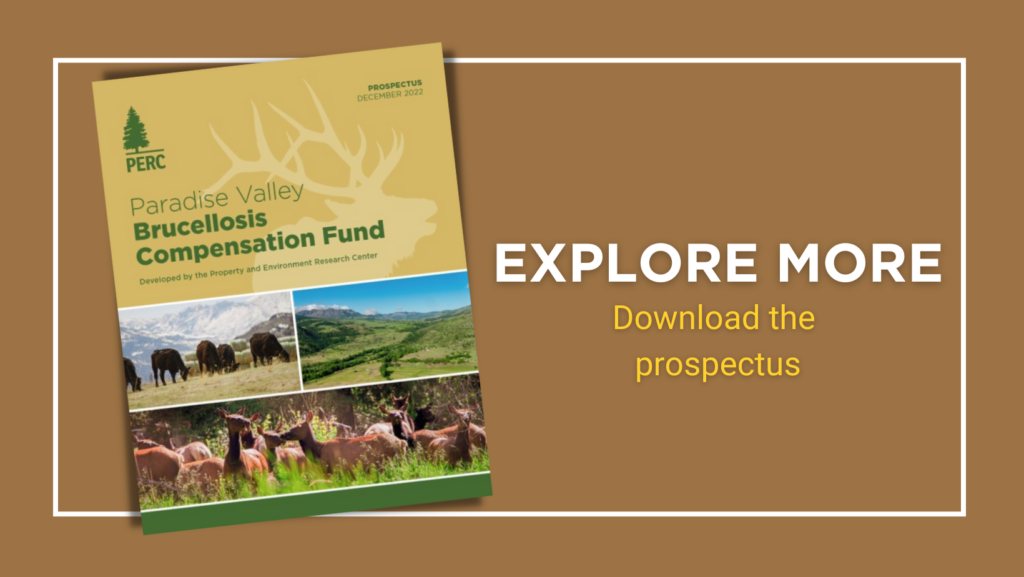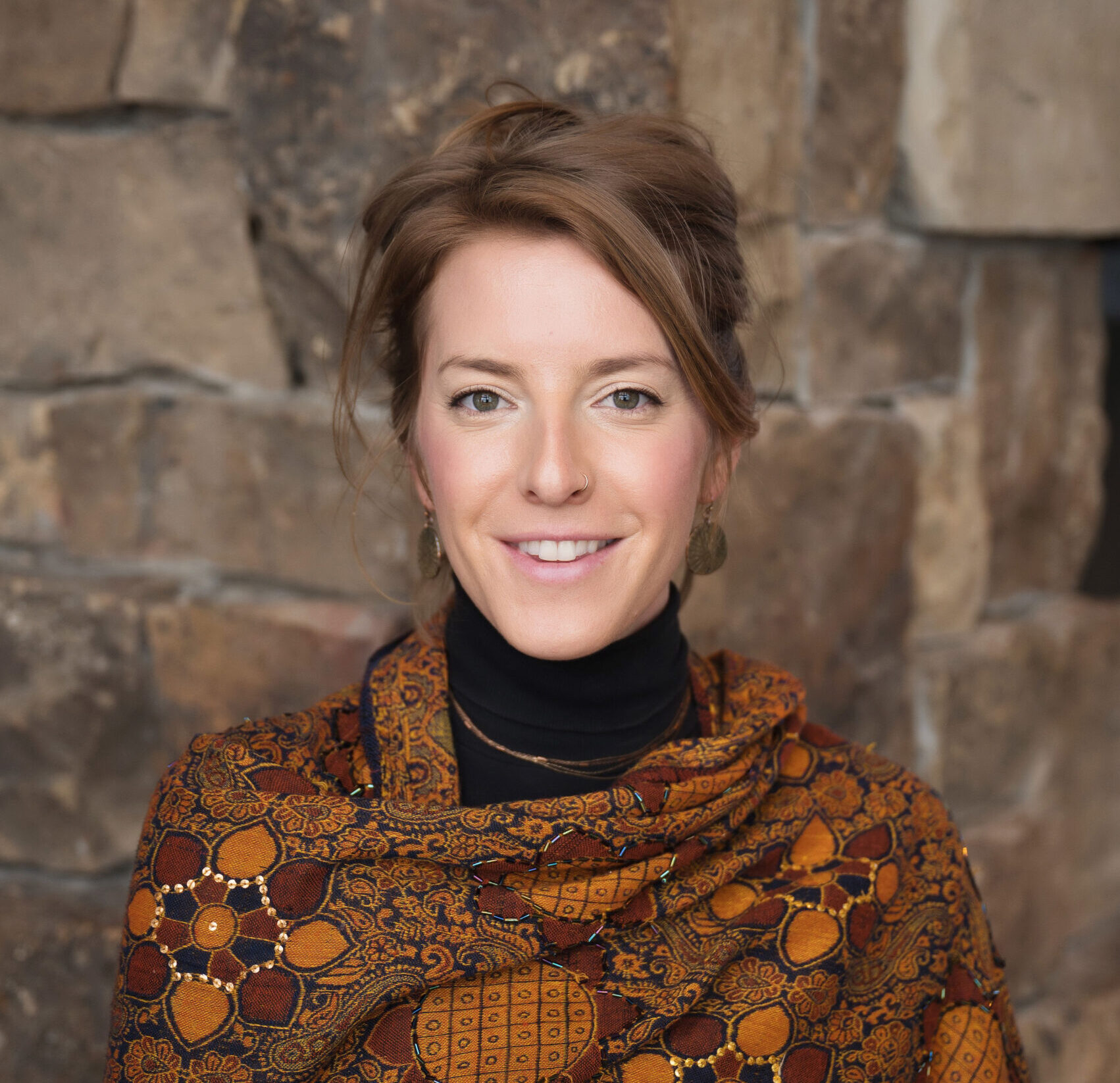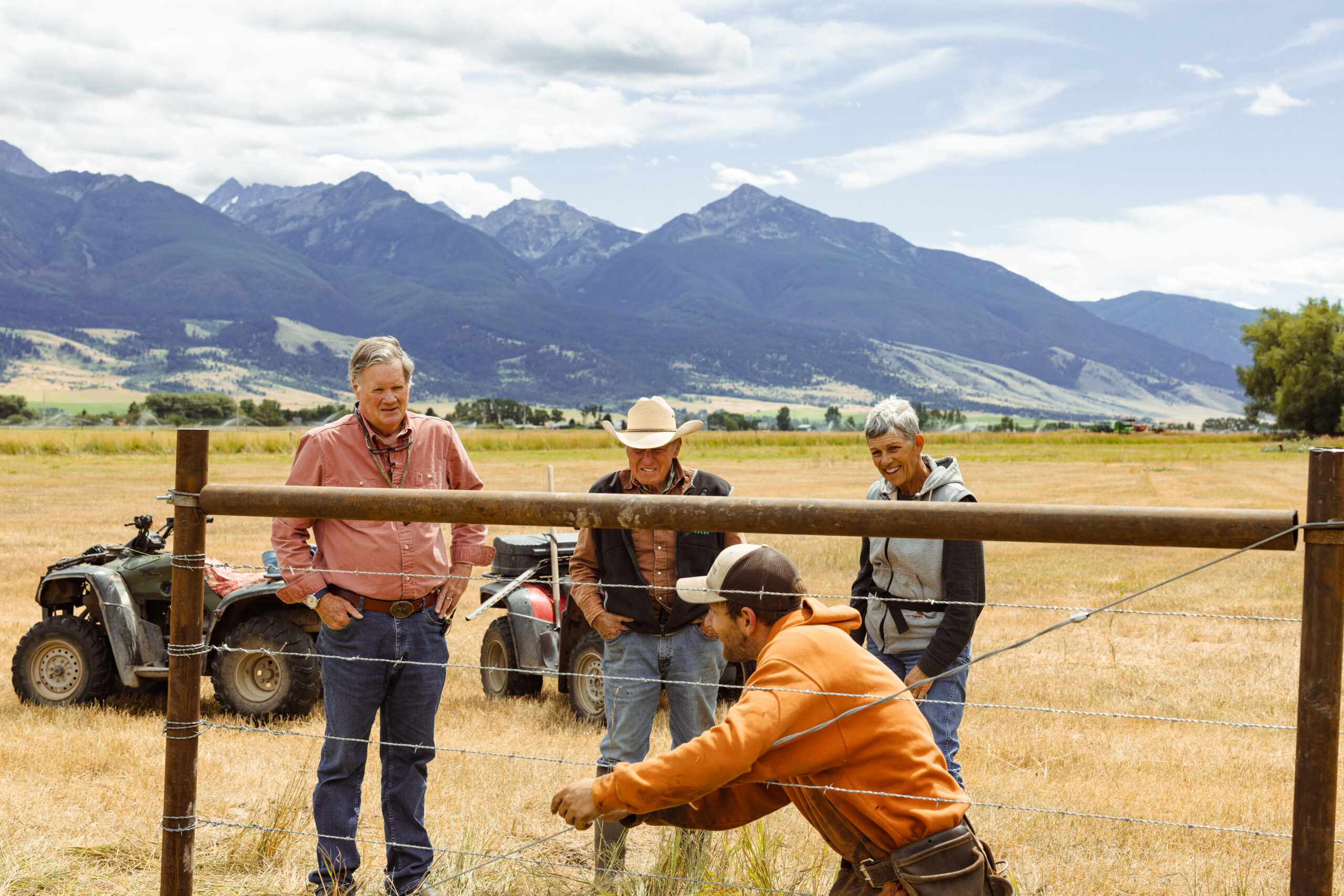PARADISE VALLEY, Mont. — The Property and Environment Research Center (PERC) is launching an innovative new tool to help ranchers in Montana’s Paradise Valley whose land serves as vital elk habitat. The first of its kind in Montana, the Paradise Valley Brucellosis Compensation Fund will help ease the financial burden ranchers may face if their cattle contract brucellosis from elk in exchange for providing critical habitat for migrating elk. The project brings together a coalition of conservationists, hunters, ranchers, and community members to protect elk migration and open space.
The Greater Yellowstone Ecosystem’s iconic migrating elk herds depend on working lands for their survival. Thousands of elk descend on Montana’s Paradise Valley every year to feed on ranch lands, where they can spend as much as 80 percent of their time each winter.
But their presence can bring significant costs and challenges to the landowners who provide wintering grounds, including brucellosis, a reproductive disease transmitted from bison and elk to cattle that can have sudden and devastating financial consequences for ranchers. A positive case requires an expensive and lengthy quarantine process in which ranchers often have to isolate their entire herd, undergo testing protocols that can last a year or more, or sometimes even depopulate their entire herd. Until now, private landowners have shouldered the full cost of brucellosis risk.
A market solution for conserving elk and open space
At a time of rapid regional growth and fragmentation as a result of development, supporting large, working cattle ranches by minimizing the impact of brucellosis is an urgent priority for habitat conservation. Many conservationists, hunters, and community members want to protect the region’s vibrant elk herds; the new fund provides a creative market solution for them to support elk migrations and open space.
“There is a significant opportunity for conservationists to privately fund and protect open space that migrating elk depend on in the Greater Yellowstone Ecosystem,” said PERC CEO Brian Yablonski. “If these ranches were to be carved up and developed, it would be devastating for elk herds and everyone who loves them. The Brucellosis Compensation Fund is a creative market solution that allows conservationists to help reduce a major source of concern for the private stewards of elk habitat.”
For the past several years, PERC has worked with Paradise Valley ranchers to better understand the wildlife challenges they face and develop creative new solutions by applying its research in markets for conservation. Last year, PERC established an Elk Occupancy Agreement in partnership with the Greater Yellowstone Coalition and a ranching family that privately conserved 500 acres of elk winter range.
In a 2019 PERC survey, ranchers identified brucellosis as the most concerning wildlife issue they face. The survey was published in a 2020 PERC report, “Elk in Paradise,” which provided 13 recommendations for conserving elk habitat and working lands in Paradise Valley, including financial incentives such as a brucellosis risk-transfer tool. Since then, PERC has helped organize the Paradise Valley Working Lands Group, and PERC researchers have worked with landowners and other stakeholders to explore potential solutions that would increase tolerance for wildlife by reducing the impact of brucellosis.
“PERC has become a trusted partner in the ranching community of Paradise Valley,” said Druska Kinke, a third-generation cattle rancher in Paradise Valley and a leader of the Paradise Valley Working Lands group. “Their innovative conservation solutions will help working lands continue their goal of habitat stewardship to benefit cattle and wildlife. In addition, PERC and their network of dedicated conservationists are assisting with the difficult issues, participating in the hard conversations, and creating partnerships that will help sustain the working lands of Paradise Valley.”
How it works
PERC’s researchers developed the model in partnership with conservation partners and the ranching community with an aim to keep it as straightforward as possible:
- Timing: The three-year pilot project begins in January 2023
- Participants: Available to any cattle rancher in Paradise Valley, Montana
- Fund size: $100,000 – $150,000 available (currently capitalized at $115,000) to cover 50 to 75 percent of a rancher’s quarantine-related costs following a positive brucellosis test. The partial funding incentivizes ranchers to remain proactive in precautions against the disease.
- Payouts: 75 percent of estimated hay costs, with a maximum payout of 50 percent of the initial fund size for any single quarantine event.
If successful, the fund could be expanded into other areas in the future or lay the groundwork for a more formal financial risk-transfer tool (e.g., a “brucellosis bond”) to address long-term brucellosis risks.
Support from conservation partners
Conservation partners stepped up to fund the program, including financial support from the Greater Yellowstone Coalition, Rocky Mountain Elk Foundation (RMEF), Spruance Foundation, and Credova, an outdoor recreation financial technology company based in Bozeman.
The partners added:
“By sharing the costs that come with providing habitat, this novel approach can increase landowner support for living with wildlife, build trust within the community, and help ensure migration routes and winter range on private lands remain open and avoid subdivision development,” said Greater Yellowstone Coalition Executive Director Scott Christensen. “We are proud to be a partner in supporting a creative new tool for conserving the iconic migratory wildlife of the Greater Yellowstone Ecosystem.”
“Quality habitat is essential to ensuring the future of elk and other wildlife,” said Rocky Mountain Elk Foundation President and CEO Kyle Weaver. “Ranchers play a critical role in this effort. We’re proud to work with them and PERC on an innovative solution to continue to carry out this vital conservation work.”
“The Brucellosis Compensation Fund allows us to directly support our passion for wildlife and the outdoors,” said Credova CEO Dusty Wunderlich. “Growing up in a small ranching community allowed me to see first-hand the role ranchers and farmers play in conservation. Being able to support a private market solution that positively impacts the ranching community and conservation hits at the core of our values as an organization.”
“Private lands and individuals have an important role to play in protecting the abundant wildlife found at Yellowstone National Park and throughout the Greater Yellowstone Ecosystem,” said Thomas Spruance, president of the Spruance Foundation. “I’m honored to join other committed conservationists in protecting the region’s majestic elk herds through this innovative approach.”




